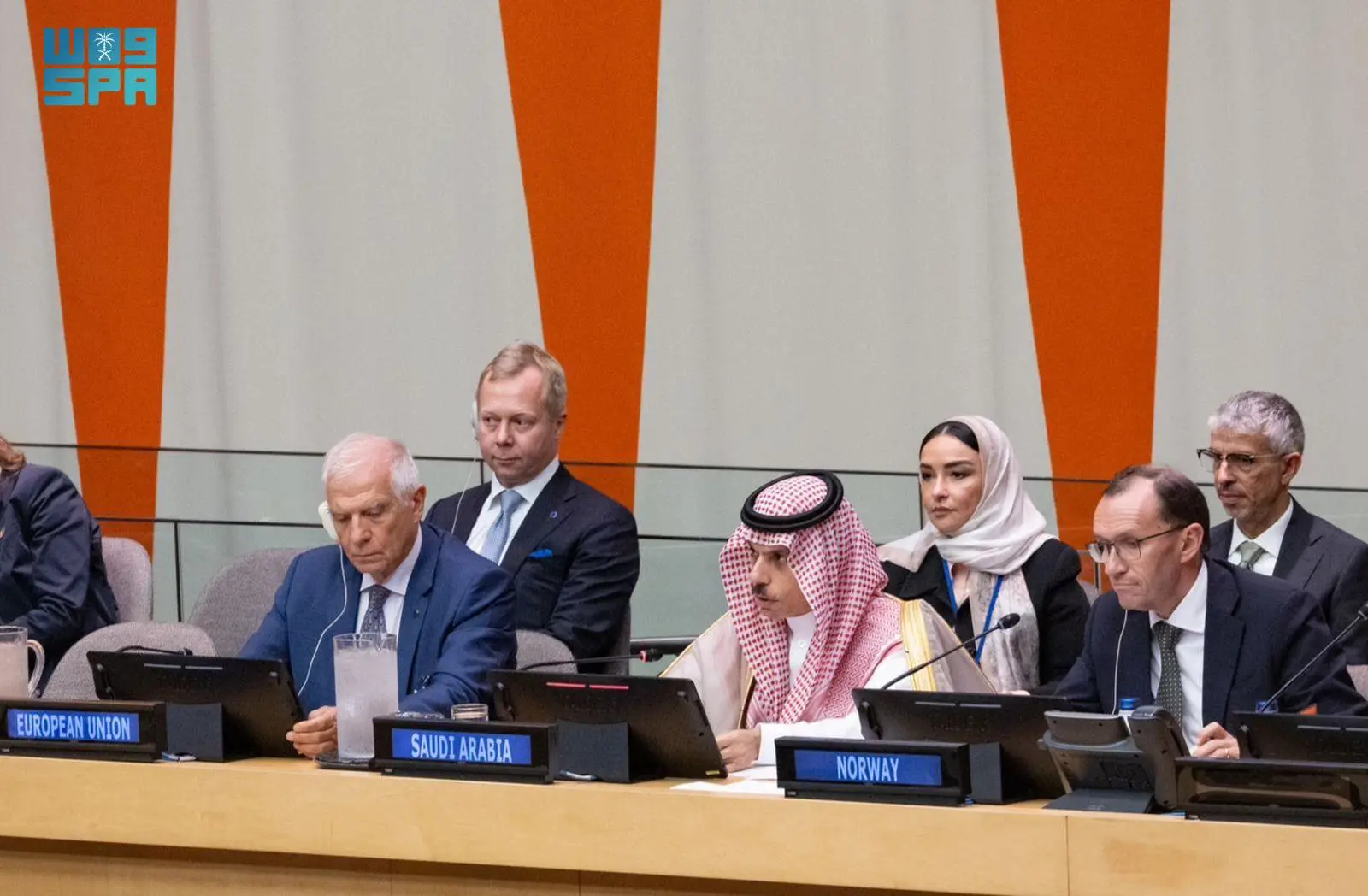European, Arab and Islamic nations have launched an initiative to strengthen support for a Palestinian state and its institutions, and prepare for a future after the war in Gaza.
On the sidelines of the 79th U.N. General Assembly meetings in New York City, Saudi Arabia’s foreign minister, Prince Faisal bin Farhan Al Saud, and Norway’s foreign minister, Espen Barthe Eide, co-chaired a special meeting to launch “The Global Alliance for the Implementation of a Palestinian State and a Two-State Solution” with representatives from almost 90 countries in attendance.
In remarks to The Associated Press, Espen Barth Eide stated that, “there is a growing consensus in the international community from Western countries, from Arab countries, from the Global South, that we need to establish a Palestinian Authority, a Palestinian government, a Palestinian state — and the Palestinian state has to be recognized.” Adding that many issues need to be addressed, including the security interests of Israel and the Palestinians, recognition and normalization of relations after decades of conflict and the demobilization of Hamas as a military group.
Speaking separately at a ministerial meeting on the Palestinian issue, Prince Faisal stated that Saudi Arabia demands, “an immediate end to the ongoing war and all violations that violate international law, and holding accountable all those obstructing the peace process and preventing them from threatening the security of the region and the entire world… We wonder what remains of the credibility and legitimacy of the global system in the face of our inability to stop the war machine and the insistence of some on the selective application of international law in clear violation of the most basic standards of equality, freedom, and human rights.”
Prince Faisal concluded his speech by announcing the launch of the “The Global Alliance for the Implementation of a Palestinian State and a Two-State Solution” saying: “Today, in the name of Arab and Islamic countries and our European partners, we announce the launch of the “International Alliance to Implement the Two-State Solution,” and we invite you to join this initiative, stressing that we will do our utmost to achieve a reliable and irreversible path to a just and comprehensive peace. We look forward to hearing what you have to contribute to ending this conflict to preserve international security and peace.”
The initial meetings of the Alliance will be held in Riyadh and Brussels.
As a guarantor of the 1993 Oslo Accords, Norway remains closely involved with efforts to resolve the Palestinian issue. Currently, 149 of the U.N.’s 193 member nations have recognized a Palestinian state.
Espen Barth Eide said this new effort is built on the 2002 Arab Peace Initiative, “but updated to today’s reality.” The 2002 initiative, endorsed by the Arab League and the 57-member Organization of Islamic Cooperation, offered Israel normalized relations in exchange for a full withdrawal from territories captured in 1967.
Eide added that, “None of these tools will solve the problem on their own, and we never pretended that, but we’re trying to build a body of instruments that will take us forward to a peaceful settlement… And I am convinced it will happen here.”
Separately, in his closing remarks to the U.N. General Assembly, Eide said that, “while cease-fires in Gaza and Lebanon are most urgently needed, ending hostilities must not be confused with lasting solutions.” He called on the 44 U.N. member nations that haven’t done so to recognize the state of Palestine and allow it to become a full member of the United Nations.
To read more, click here, here, here and here.









